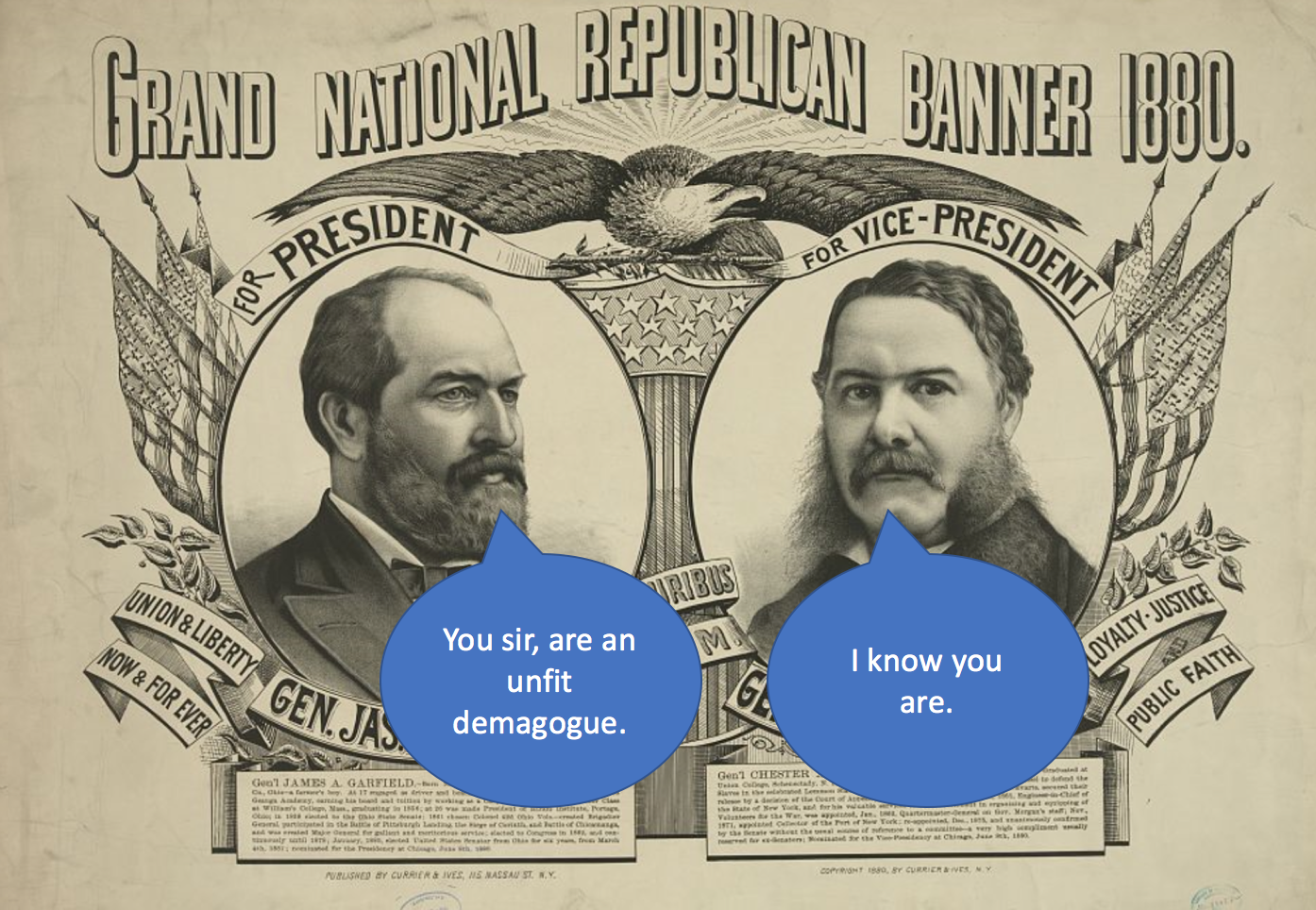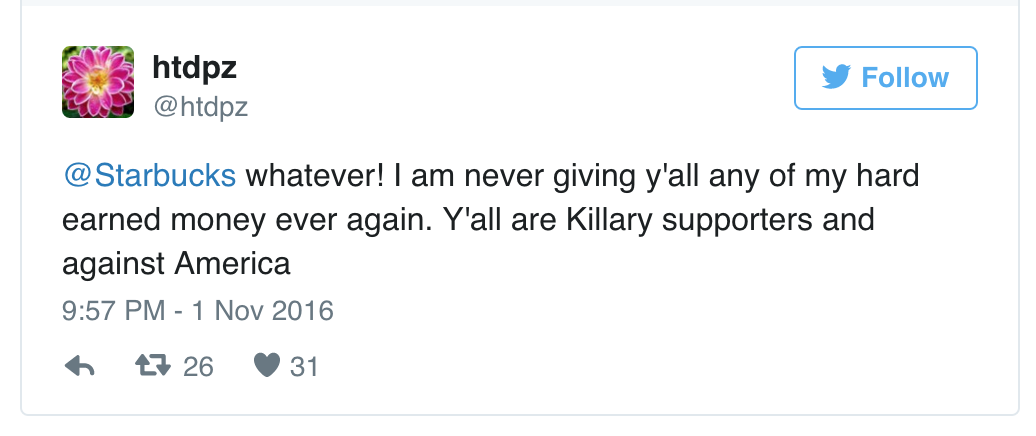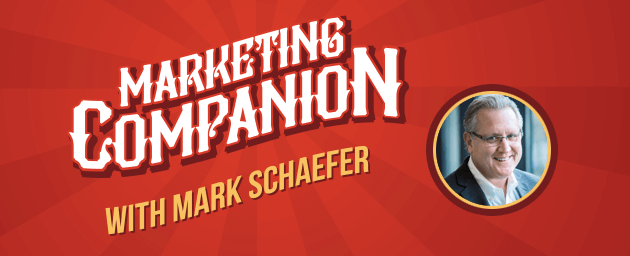By Mark Schaefer
Undeniably, there’s a blurring between public and personal in the digital world today. It’s just so easy to be reactive on Facebook and the other social platforms that perhaps we lose sight of the public consequences of what we’re doing.
Everybody has the right to post whatever they want as long as it is not “hate” or hurting another person. But keep in mind that everything you say (and everything you don’t say) becomes part of your brand. Probably permanently. In this post, I want to encourage you to discern between free speech and harming your brand by politicizing it.
Or, even getting fired for what you thought was a Constitutional right …
Politicizing your brand
I have a friend who took down a polarizing post about the new U.S. president because her employer received complaints that it was offensive. Were they right to do that? Is that fair? Should an employer have the right to step in on a personal situation like that?
Let me use an example to answer this question.
I have a friend who runs a small company that I’ve worked with for years. I have enjoyed keeping up with him on Facebook. Until now. This fellow posts something caustic about politics every hour of the day. He is no longer being intelligent or thought-provoking. He has become shrill and ferocious.
He has the right to say whatever he likes. But he’s more than an individual. He’s also a brand — both a personal brand and a representative of his company. It’s impossible to separate the two. I have a feeling of hesitation about working with this company any longer because I am simply 100 percent sick and tired of the endless, hate-filled rants.
He has politicized his company brand for me, and undoubtedly others, whether I agree with him or not.
Marketing is about building an emotional connection that leads to trust between you and your customers. Is the “content” you’re putting out there leading toward trust and goodwill, or discord?
You and the company brand
Now this situation is a little different from the first case because it involves the actual owner of the company. What about the woman who had her employer step in on her very polarizing social media post? In this example, she is an indirect company representative.
Whether you like it or not, you are always “on.” When people post in their bios “all views are my own,” that really has no bearing on reality. You always represent other things — your company, your school, whatever affiliation you have. Nobody has a wall that goes up in their mind to separate your content into little “personal” and “professional” bins.
If you are highly-associated with your company (and this woman is), then it’s difficult to separate the personal controversial views and the company brand. It’s kind of like a reverse halo-effect. If the woman is beloved, the company appears beloved. If the woman is divisive, perhaps the company will be seen as divisive.
This may seem like a controversial point of view, but I think the company has the right to ask her to tone things down if it could jeopardize its ability to operate in a way that provides value to their stakeholders — their purpose as a company.
That seems unfair but it’s an economic reality. It’s also a legal reality.
“Free Speech” can get you fired
Attorney Glen Gilmore, author of Social Media Law for Business cautions that the law may be on the side of businesses when it comes to caustic social media posts by employees: “‘Freedom of speech’ enshrined in the First Amendment of the US Constitution is a protection against governmental abridgment of free speech. Generally, it does not protect an ‘at-will’ employee from being fired for something posted to even one’s own social media pages.
“People are often confused about their rights, especially when they’re waving the Constitution around. Weighing carefully your online political rantings makes sense for both your personal career and business brand,” he noted.
“Employees do have broad rights under the National Labor Relations Act to speak, as the Act defines, in a ‘concerted fashion’ about the ‘terms and conditions of their employment’. When employees stray from this distinct protection, just about anything they post online may put their jobs at risk, absent a specific state law protection or contractual agreement,” Gilmore warned.
What about you?
There are some reading this article who will become incensed. They will say that nobody will ever tell them what to do or say on social media. Be authentic, right? Cool. More power to you. That is your right and it is also your right to live with the consequences of what you say.
But it becomes tricky when a company has to live with the consequences of the public views of controversial employees.
A recent example is the backlash against Starbucks as CEO Howard Shultz increasingly associates his brand with political issues.
Schultz has been extremely vocal about political contests (he called the recent presidential campaign “a circus” and publicly endorsed Hillary Clinton). He angered gun rights advocates, encouraged Starbucks baristas to discuss race relations with customers, and took out controversial full-page ads during the campaign.
These political views force people to be positive or negative about Starbucks, instead of simply enjoying the chain as an uplifting place to share a cup of coffee.
The issue of employee activism and a brand image opens up a Pandora’s Box of legal considerations but in the real world, companies normally find a way to move away from controversial personalities. No business I know of wants to have a brand image characterized by divisive political controversy (even Starbucks has made moves to tone things down).
A friend told me, “Once a brand becomes divisive and political, it takes a lot to get me back in their good graces.”
I want to emphasize that I think you should fight for the values you believe in. Just be aware of crossing the line into a place where divisive comments jeopardize business relationships, if that matters to you.
There is a time and place for political discourse but if social media is the place where you represent your organization (directly or indirectly), consider the broad, long-term implications of being a highly-politicized brand.

Disclosure: Book reference is an affiliate link. Base illustration marked safe for re-use by Google search and annotated by the author.




